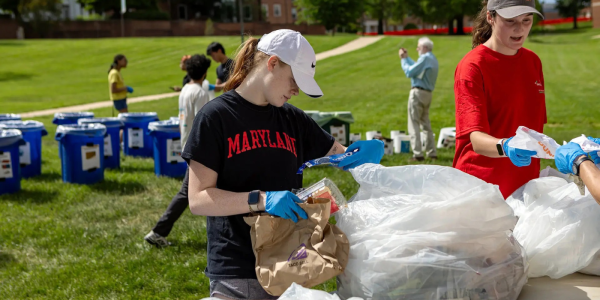UMD Libraries
Search
Detailed collection search results from UMD Libraries collections and from libraries worldwide.
Quick Actions
Preview results from libraries collections, databases, Libraries’ websites, research guides, FAQs, and Database Finder and more.
Welcome to our new tabbed search interface. Use UMD Discover for library collections (learn more). Use Search All to preview results across research tools.
Quick Links
Top Textbooks Available
Borrow textbooks for popular university courses for up to 4 hours.
Personal Study Spaces
The libraries have a number of reservable rooms to meet your needs.
Borrow Equipment
The libraries has general use and specialty equipment you can borrow.
Copy, Print, Scan.
Library patrons have access to printing equipment located on-site.
News & Events

The module won in the Social Innovation category.

Services and resources from the Libraries and campus to help you finish the semester strong.

Library’s Waste Audit Gathers Info With Goal of Improving Sustainability
Oct
8
—
10:00AM
Featured
Research Guides
Tracking Federal Information and Data Resources
The Tracking Federal Information and Data Resources research guide is now available to help students, faculty, and researchers understand the rapidly changing data landscape.

Collections
Information for the People
UMD Libraries is a Congressionally designated depository for U.S. Government documents. Find legislative hearings, Congressional reports, federal regulations, census records, statistical reports, court decisions, agency publications, posters, pamphlets, and more.

Research Guides
Artificial Intelligence (AI) and Information Literacy Research Guide
As AI becomes more integrated into everyday life, the more important it is to understand its uses and limitations. This research guide will help you navigate the rapidly changing world of AI and gain important critical thinking tools for interacting with AI.